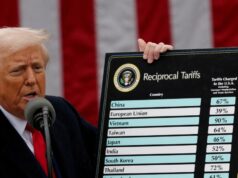Egypt’s Ambassador to India Kamel Galal did not hold his punches at a recent event in Delhi, calling out Israel for its “policy of extremism”.
“Prime Minister Rabin lost his life because of the Oslo Accords,” he recalled, referring to the two agreements between Israel and the Palestine Liberation Organisation signed in 1993 and 1995 that laid the ground for a “two-state” solution.
But as Ambassador Galal noted, “The Israeli side started moving more and more towards extremism. If you see the trajectory of the Israeli side, from where it was in the 90s and where it is today, Israel keeps speaking about existential threats.”
But Israel’s threats are not from Gaza, Hamas, or even Hezbollah, he argued. “The real existential threat to Israel,” he added, “is coming from within.”
He referred to the assassination of Rabin in 1995 by a Jewish extremist who opposed the Oslo peace process. But the roots may have been laid even earlier, in 1977 when the right-wing Likud party won the elections, showing the door to left wing parties for the first time.
Israeli politics has since shifted further to the right, particularly under successive Netanyahu governments. In fact, the cabinet formed in Dec 2022 is not only regarded as the most right-wing, it is also seen as the most religious.
As Ambassador Galal said, “Let me tell you that extremists always use religion. And people start building on that. And the developments on the ground actually help them. The Israelis are doing that. I warned them that this is very dangerous, do not give a religious flavour to any country.”
Galal’s warning echoes broader concerns raised by international analysts about the Israeli government’s increasing emphasis on Jewish identity in its laws, such as the 2018 Nation-State Law, which critics argue marginalises non-Jewish citizens and fuels religious polarisation.
“Inside Israel, there are terrorists that are now in government, and looking to fight,” he said. This will only worsen the conflict in the region.
“If we keep this trend going, the Palestinians will be radicalized. Hence, we must recognise the Palestinian state.”
Cairo has repeatedly pushed for international recognition of Palestine. While it was also among the first Arab states to formally recognise Israel, it continues to champion Palestinian sovereignty at the UN and Arab League forums.
While the Israeli narrative is that recognition of the Palestinian state means giving a prize to Hamas, Galal believes that not recognising it will push Palestinians more and more towards that goal.
Multiple countries in Europe including Spain, Ireland, and Norway, have formally recognised the State of Palestine, citing a need to preserve the viability of the two-state solution.
India has maintained its historic support for Palestinian statehood, though it has simultaneously deepened strategic ties with Israel.
Galal believes the region and Israel must work for the two-state solution no matter what the odds.
“In the 80s, we faced a whole wave of terrorism because of the peace treaty with Israel. But we were resilient. The real problem with Israel is that the Israeli side is not resilient,” he said.
Looking ahead, he does not believe that once this war is over, there will be any dramatic change in the “pillars” of the region.
“There are three main pillars in the Middle East – Egypt, Turkey, and Iran. These are the constant powers. And then there are always changing and rising powers. Some powers rise, and then fade away. Let’s see where they are in 40 years,” he said.
“See countries like Iraq and Syria. Where are they now?” he asked.
“Egypt is humble and patient, and a crucial nation in the Middle East. We keep good relations with all our neighbours,” he said, underscoring, “If you have a friend, don’t just back away. Tell him what you’re doing is wrong.”
Is Israel listening?





